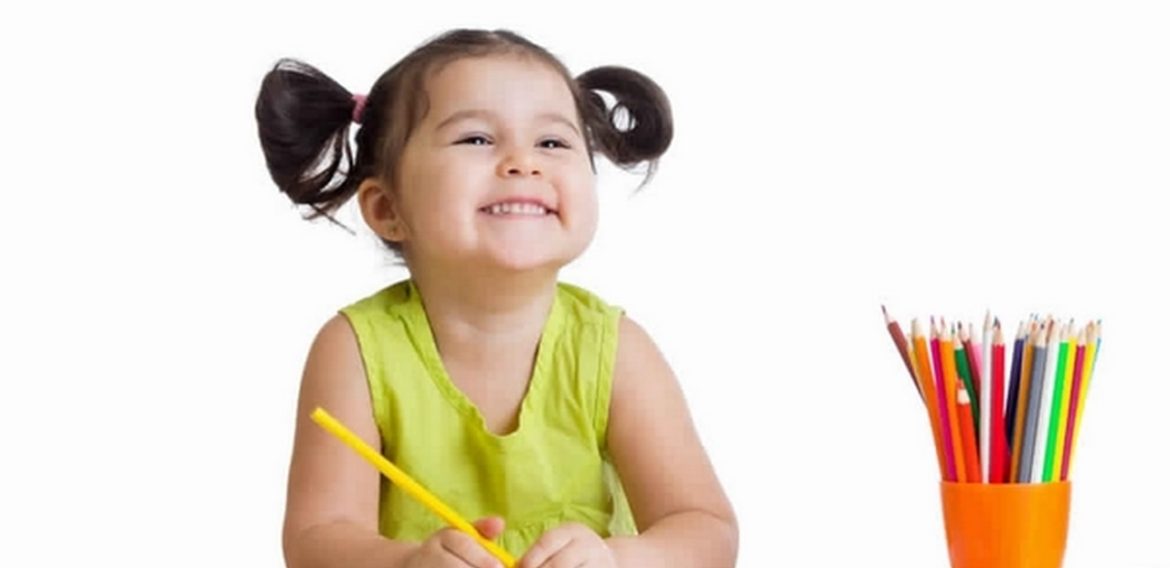- Comfort
- Light
- Grey
- Dark
Developing Your Child’s Memory
The sound of a familiar lullaby, sung by his mother in the middle of the night, made 4-month-old Max stop crying. “His face relaxed, and he smiled,” says Nancy Wechsler-Azen, of Fair Lawn, NJ. “I think that even though he was so young, he recognized this little song, and that I was the someone who always sang it.”
The development of memory goes hand-in-hand with the awakening of consciousness. As he grows up, Max will remember what his grandmother looks like, words and colors, the names of all his playgroup buddies, and entire rhyming books. One of the first steps on the road to reading will occur when he memorizes the alphabet. He’ll commit to memory multiplication tables, vocabulary lists, the 50 states, and a sonnet or two. He’ll try not to forget lunches, book reports, phone messages, and which days he has to bring his soccer cleats to school. And all the way through, he’ll be recording and remembering experiences, both pleasant and not, that will shape him for the rest of his life.
When you put together all these different modes of remembering — intellectual, practical, and autobiographical — the awesome role that memory plays in our lives becomes apparent. We are who we are largely because of what we can remember.
In general, the older a child gets, the more she can remember. Memory being the useful thing it is, it would be great if we could hurry it along a bit, do something to kick it into overdrive. But it resists being rushed, and all the so-called memory games and drills don’t do a thing for kids, experts say. Practice won’t make perfect. “It’s not like you’re developing a muscle. You can’t go to a mental gym and work out with weights to enlarge memory capacity,” says Stephen Ceci, Ph.D., a professor of psychology at Cornell University, who specializes in memory development.
However, if you understand how memory develops — what children remember when, and why — you can encourage that development and make sure your expectations match your child’s abilities.
Carolyn Hoyt, a mother of two, writes regularly about parenting and educational issues for a variety of national magazines.
BABIES AND TODDLERS:
Most of us can’t think back to that time before we reached the age of 2, a period of what experts call “infantile amnesia.” According to Ceci, we access our memories in the same way that we store them, through language. Since babies have no language for recording their experiences, all the hugs and kisses, smells and tastes of babyhood are irretrievable, though their effects (we hope) last a lifetime.
Yet researchers have discovered that recollection starts very early. “Six-month-old infants can be trained to move a mobile in their crib by kicking at a ribbon, and they remember that activity a few days later,” says Judith Hudson, Ph.D., an associate professor of psychology at Rutgers University. When Emily Fulk, of Naperville, IL, was 10 weeks old, she would purposefully bat a toy attached to her bouncy seat, even after a day or two away from it. “At first I thought, ‘No, she can’t be remembering that movement,'” says Emily’s mom, Dani, “but then I looked at her and she was doing it again: same motion, same hand, same result. She’s got to be remembering.”
Toddlers can remember things that interest, frighten, or excite them for as long as ten months after their first exposure, notes Hudson. Which explains the time I took my daughter for her 12-month checkup, only to have her howl when the lady with the short blond hair and the white coat appeared; the same one, I finally remembered, who’d come at her with that cold, scary stethoscope three months before. “A toddler won’t remember the particular events of her last doctor’s visit, but she can have a generic sense of what happens at the doctor: ‘That lady did something to me, and I hated it,'” says Hudson.
Even a single bad (or good) experience will stick with toddlers, for they tend to generalize. If it happened once, they figure, it’s sure to happen that same way again. Scripts that tend to stick in memory are pleasant (when you go to Grandma’s, you get to eat great cookies), unpleasant (when the babysitter comes, it means that Mom is leaving), or stressful (they left me here with Auntie Sue and then came back with that icky baby).
MEMORY BOOSTERS:
Supply your toddler with reliable routines. You might play a game of what comes next at bedtime, or help her put her “lovey” to bed. Nurseryrhymes reinforce a toddler’s sense of expectation, to the point that she’ll start filling in the blanks with “goo’s” and “gah’s” before she’s even started talking. Repeat action rhymes and songs (like “Itsy Bitsy Spider”) to her, and she’ll start doing the motions before you even get to the next phrase.
TRICKS THAT WORK:
- Let her do it herself. If it’s been in the hand, it’s more likely to stick in memory. (Of course, once she’s opened the cookie drawer and found a treat, you’re sunk.)
- Remind her with a picture. When she’s not seen Grandma for some time, you can prime your little one with a photo.
Ages 2 to 5
It’s not only the ability to talk that jump-starts memory; it’s also the ability to tell a story. The story form creates a context that makes something memorable. “The narrative form is the scaffolding and support for remembering,” agrees Peter Ornstein, Ph.D., professor of psychology at the University of North Carolina at Chapel Hill, and coeditor of Memory for Everyday and Emotional Events.
Preschoolers begin to remember specific events from their past — that is, “I remember the day I wore my red swimsuit to the beach and met my cousins there,” rather than, “I remember the beach” — when they can construct a narrative about what happened. The building up of autobiographical memory starts here.
As preschoolers, children start remembering abstract concepts, such as colors, how to count to ten, and the ABC’s. They store this information in their short-term memory, and then struggle to retrieve it when they need to. At some point, though, the retrieval process becomes instantaneous and the struggle disappears. They don’t remember color names — they just automatically know them.
These abstract memories get transformed into knowledge when they’re frequently retrieved, sort of like learning how to drive a stick-shift car. “When you start out, just remembering how to do it consumes all of your attention. All your energy is taken up,” says Ornstein. “After a while, though, remembering that skill is smooth and effortless. The strategies you use to remember are deployed automatically.” In this case, practice really does eventually make perfect.
A preschooler will naturally remember things of interest to her, like her sister’s favorite — and forbidden — Barbie doll. When it comes to memorizing more complex things, her best memory tool is one that parents are all too familiar with: repetition. “We were in the car, and my mother-in-law was telling me a story about when my husband and his brother were children,” says Judy Williams, of Middletown, CT. “My then 3½-year-old, Samantha, was listening in the backseat, and she made my mother-in-law tell the story as many as eight times. Then she told the story back to us, and remembered the whole thing.”
When preschoolers demand you read a book to them again and again, they’re unintentionally using the strategy of repetition so that they can learn it by heart. And if it’s a book that’s memorable — with rhymes, rhythm, good pictures, and cool characters — they will, in all likelihood, eventually regale you with the whole thing, verbatim. And don’t try skipping words at bedtime. They’ll catch you every time.
MEMORY BOOSTERS :
Repetition, though it does store information, does nothing to actually improve memory capacity. But researchers have discovered that helping your child learn how to tell a story will enhance memory development. “When you talk about the past with a preschooler, it has long-term payoffs,” Ornstein says. “She’ll extract general principles about what she can remember about the past, and about how to remember.”
To help a child tell her stories: Prompt her to elaborate on her experiences. Not the big things, like a trip to Walt Disney World, but everyday occurrences, like circle time or playtime.
Ask her a specific question, like, “Did you have Oreo cookies again for snack today?”
Keep the story going, and focus on your child’s interests, not on your own. You might ask her, “Did you open up the Oreo and lick out the cream? Did your friend Dylan do that, too? I bet that was really funny, wasn’t it?”
TRICKS THAT WORK:
- Reconstruct the past. If your 4-year-old lost his favorite action figure sometime before lunch, help him recount the story about when he and Batman started playing, what they did together, and whether the Batmobile sped under the couch or the piano.
- Make up melodies and rhymes. Teach your child his phone number by setting it to music, and do the same with the spelling of his name. “Twinkle Twinkle Little Star” works really well for phone numbers.
- Use it and he won’t lose it. This works for safety rules as well as colors and the ABC’s. Integrate the concepts that you want him to remember into everyday routines. Have him identify letters of the alphabet in street signs or cereal boxes. Let him use the phone to call home by himself. Remind him to look both ways every single time you cross the street.
Ages 5 and Up
In grades K to 2, kids learn to read and to do basic arithmetic, huge tasks that draw heavily on memory. At the same time, they’re responsible for more at home. “I can tell my 6 1/2-year-old, Dorrie, ‘Go upstairs, get a pair of white socks from your dresser, get your black shoes, go to the bathroom, don’t forget to bring down a barrette for your hair, and I’ll meet you in the kitchen,'” says Beth Paradies, of Atlanta, GA. It makes sense that memory abilities naturally improve to meet these challenges. Changes in the brain make it easier for an older child to remember.
But children don’t remember all things equally. “Kids — and adults too — remember what they find interesting, what they know a lot about, and what they understand,” says Ceci. An elementary-school-age kid can have breathtaking memory abilities in one specific area, whether it’s Beanie Babies or North American bird life. Take Drew Friedberg, of Wyckoff, NJ. At age 6, he could tell you the statistics of all his favorite baseball and basketball players — height, weight, rebounds, RBI’s, home runs, you name it.
It’s odd, then, that a child’s ability to memorize in one area may not necessarily translate to any others. In one well-known experiment, child chess experts could remember positions on the board far better than adult novices. But when asked to recall a string of numbers, the adults performed much better than the kids. Their memories were precocious only in the context of chess. Likewise, Drew doesn’t necessarily have an all-around great memory, just a great memory for sports stats.
So how do school-age kids remember stuff they may find less than scintillating? When they find themselves forgetting things that they’re expected to remember, they’re forced into realizing that memory requires work. “After age 5, children make a crucial memory transition by realizing that they have to do something active to help them remember,” says Melissa Welch-Ross, Ph.D., an assistant research professor of psychology at Georgia State University, in Atlanta.
MEMORY BOOSTERS :
Although a 6- or 7-year-old may learn to use a strategy with great facility in one specific area, she won’t be able to transfer this strategy to other areas. “I can get a first-grader to sort like a third-grader, breaking a group of items into smaller groups and arranging them by category. Whoever uses the sorting instructions remembers more. But, when I follow it up with a similar task, the third-grader will use the strategy again, while the first-grader will not,” says Ornstein.
According to Welch-Ross, children who understand the strategy they used — they’re able to explain how they remembered something — can apply the same method to other related tasks. So if you can help a younger child figure out what strategy she used in one situation, and why it worked, she may be able to use it again in a different context.
David Bjorklund, Ph.D., author of Children’s Thinking, recommends these strategies to improve kids’ memory:
Prepare ahead of time. Get your child into the habit of setting out the things she needs for school the night before, someplace where she can’t miss them.
Create a place for everything. If she puts her Pokemon away in the same place every time she’s done with it, the darn thing won’t get lost so much. (The same thing works for car keys.)
Visualize. A child making out her birthday wish list might want to visualize the toy store in her mind, going down each aisle one by one, so she won’t leave anything out.
Set up memorable cues. Put her sneakers in the dog bowl, and your child won’t forget to feed the dog before she runs to catch the bus.
TRICKS THAT WORK
- Externalize. Have your child make lists and keep a calendar of events that are important to him.
- Provide context. Interest and knowledge create a rich base for a child’s memories. So if you want your child to develop a great memory for, say, music, help create the context: play a lot of music, provide lessons on an instrument, take him to concerts, and read books about composers.
- Chunk and sort. You can teach your child to memorize a poem by breaking it down into small pieces (chunks), then tackling the hardest parts first. Show him that this strategy will work magic when memorizing fractions or the causes of the Civil War, and can also be applied when packing for a weekend at Grandma’s house.
By age 12, a child is capable of using the same strategies and tricks that adults use, and after that, memory capacity continues to increase with knowledge and experience. Of course, that means that before then, parents will have to do an awful lot of remembering for their children. However, though the window of memory development opens slowly, it stays open for a long, long time.
By : Carolyn HOYT



 العربية
العربية
No Comments